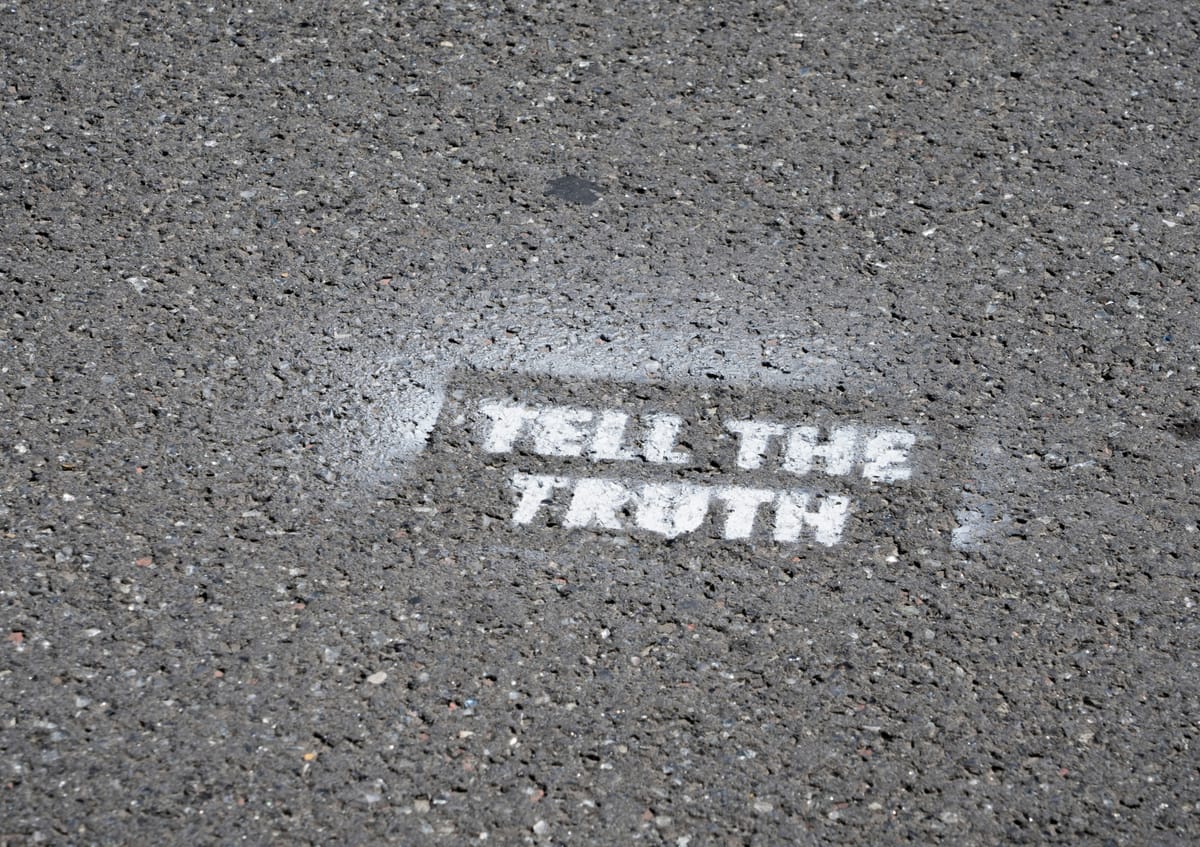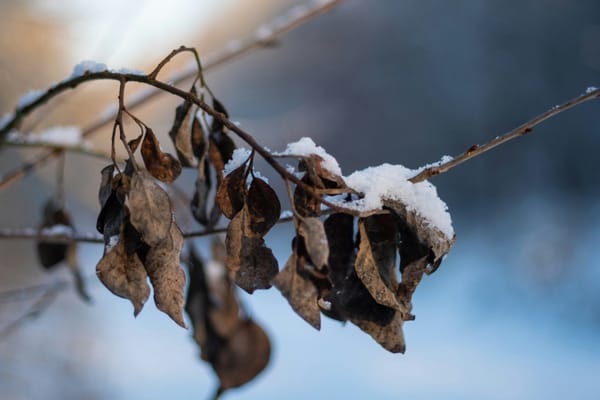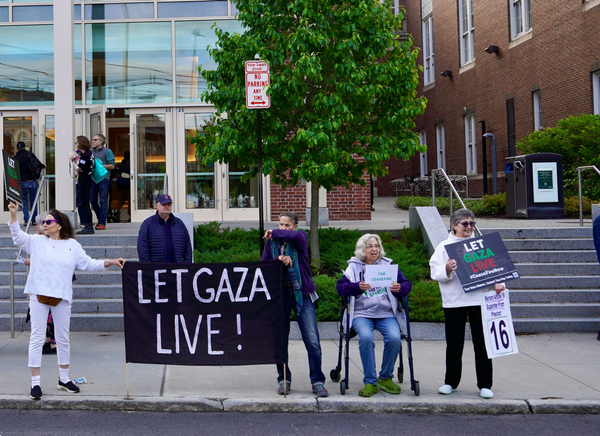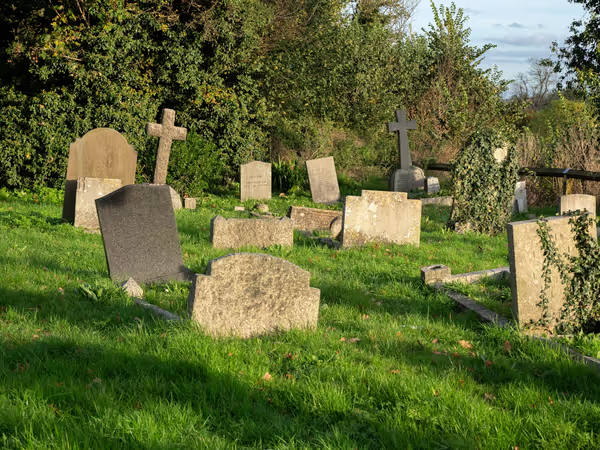The Autumn of Our Discontent

Thoughts on Political Violence and the Death of American Civil Society
Update: Shortly after the publication of this essay, Disney reinstated Jimmy Kimmel (presumably as a result of calculus over the loss of Disney+ streaming subscriptions). This is a victory, though not a massive one. The legacy media are still self-censoring and remain largely captured by the fascist regime.
Hello, fellow bugbears!
It's been longer than I intended to wait before writing again. Over the past few weeks, a lot of untamed thoughts have been swirling in my head. I had a number of ideas for new essays, but lacked the ability to funnel my thoughts into a coherent stream that could be shaped into one of them.
This was particularly the case after the Charlie Kirk assassination. When I first saw the news that Kirk had been shot, I thought--and I will not apologize to this (which makes me unemployable in the kinds of American institutions where I used to crave employment)--"It couldn't have happened to a more deserving individual." That is not a call for further vigilante violence. It is merely, in my view anyway, a fact. And nothing about the shooting turning out to be fatal, which I did not know at the time, alters my assessment.
I cannot and will not mourn the death of a person who fomented violence against trans people such as myself, and against people of other marginalized groups with whom I stand in solidarity. I had no idea that my last Bugbear Dispatch, which I published shortly after the death (of natural causes) of influential right-wing evangelical James Dobson, would be relevant again so soon, but I will now briefly reiterate the primary message of that essay: We must speak ill of the dead when the dead deserve it, especially if the decedent in question was a public figure.
Charlie Kirk checks both those boxes, and I applaud the numerous brave souls who have been publicly speaking ill of him and pointing out the harm that he did as the Trump regime tightens the screws and our supposed "civil society" institutions, controlled by billionaires and cowards, capitulate without a fight. And I'm not just talking about Jimmy Kimmel's immediate and likely permanent suspension by ABC over some perfectly milquetoast comments.
I was sad to see, for example, that my undergraduate alma mater Ball State University fired a staffer for similarly milquetoast commentary made on her private Facebook page and in no connection whatsoever to her employer. And Ball State is far from alone among American institutions of higher education, to say nothing of media outlets. And of course, this comes after journalism was already decimated and in turmoil, and university faculty have been largely stripped of their power through macroeconomic changes over decades that turned higher education from a public good into an "industry" where the top administrators make all the major decisions.
I think part of what I've been doing these past couple of weeks--in addition to curling up in a ball with anxiety, worrying about the backlash from Kirk's assassination that will come for the right wing's bugbears and marginalized people who had absolutely nothing to do with the event--is grieving the loss of the social contract I once thought would apply to me, when I dreamed of nothing more than becoming a university professor who might write novels after she got tenure. As my regular readers likely know, I did spend years teaching in universities after getting my PhD in modern Russian history from Stanford in 2012--first in Moscow, Russia (I was there when the Kremlin annexed Crimea but that's a whole other story), and then in Tampa, Florida.
In post-truth, what is officially "true" is decoupled from reality and determined by power.
I miss having the privilege and honor of influencing young adults' lives as a college instructor. Working in that role, I occasionally found I was able to make a real positive impact in a concrete, visible way, which is something I've experienced very rarely. Many people tell me that my writing makes a difference, but for whatever reason (and with no false humility), it often doesn't feel like it does. At the same time, it seems to me like my voice is all I have left, and so I use it, to the extent that I can, with a reach that is microscopic in comparison with (for example) the reach Charlie Kirk had to spread the false and bigoted ideas that trans people and immigrants are criminals, and the pernicious notion that some gun deaths are "worth it" so we can have the Second Amendment.
That being said, there's clearly no place for someone like me in contemporary American academia. I am too outspoken, too far to the left, in a period when the fascists have largely won, even as they continue to claim to be victims on college campuses while they are being accommodated and coddled in all kinds of absurd ways--and, of course, they'll never deem it enough.
As things are playing out now, the Trump regime and its allies are working overtime to make Charlie Kirk's murder into their 1933 Reichstag fire. I'm not the first person to draw the parallel, and if you think it's overblown, I suggest you read journalist Jonathan Katz's argument for why it isn't.
The aftermath of this shooting has laid out for us, in the starkest possible terms, that the Right and the ultra-wealthy have killed American civil society. Our institutions that are meant to be public goods and bulwarks against authoritarianism are bought, paid for, and moribund. And when civil society dies, so does truth.
My calling, I've come to understand, is to be a truth-teller. It doesn't feel like a role I would have chosen for myself (even though in a certain sense I clearly have), but more like, to quote Protestant Reformer and general asshole Martin Luther (I know, I'm sorry), "I can do no other."
Authoritarian movements and institutions always attempt to control "truth"; this is what we mean when we refer to societies that have arrived at "post-truth" conditions, which the United States has. When institutions committed to reporting facts, or determining and distributing scientific facts in order to shape policy accordingly, are captured by ideologues and perverted to their own ends, and critical thinking in education is dismantled, we have arrived at a situation in which most people have difficulty arriving at the truth in areas where it greatly matters. And so, demoralized, many people stop trying, and simply go along with the regime's narrative to get along, whether on the invented "dangers" of vaccines or of gender-affirming healthcare, for example. In post-truth, what is officially "true" is decoupled from reality and determined by power.
And at this very moment, an obviously coordinated media (including social media and bot networks) campaign is underway not just to sanitize, but even to sanctify Charlie Kirk and his legacy, to make this bigot and architect of contemporary right-wing dynamics into a martyr. The rhetoric we are seeing, including in mainstream and legacy outlets, is a condemnation of "political violence" that is entirely one-sided.
Political violence is not only comprised of extralegal and vigilante actions, of course, but the prescribed truth of the Trump regime and its captured institutions claims that this is the only political violence that matters. And furthermore, this political violence is clearly committed only by "terrorists" and "mentally ill" folks such as trans women and brown people. Indeed, in the aftermath of any shooting that attracts widespread attention, the Right--and Charlie Kirk was heavily involved in this while he lived--begins immediately shifting the blame to the bugbears and internal enemies of American fascism, the groups that are scapegoated in order to justify actions against us.
And that, my fellow bugbears, is the type of political violence that we should be much more concerned with than stochastic outbursts of vigilantism against fascist leaders. The violence committed and/or encourage by the state. This violence includes illegal arrests and mass deportations, making vaccines less accessible, making it impossible for those who need it to access abortion care, and depriving trans minors (and, increasingly, adults) of access to needed healthcare and non-discrimination protections, making our public existence as difficult as possible until it can be made outright illegal nationwide.
This is not to say there can be no valid concerns about stochastic violence, domestic terrorism, and vigilantism. This kind of political violence--the kind that has forced a generation of American children to go through active shooter drills because of the very real possibility they could be gunned down in their schools--is a very real problem, and fwiw most of it is committed by white male right-wing maniacs, the conspiracy theorists and J6 types that this regime cultivates and elevates.
By the same token, low trust is a problem for a society because it often feeds into post-truth dynamics, and authoritarian dynamics themselves produce that low trust be causing civil society institutions to stop working as bastions of democracy. But you cannot fix the problem by telling everyone to trust institutions that have already failed, and you cannot fix our violent, conspiratorial gun culture by dishonestly lecturing society about "political violence" and "free speech" in a way that regards only fascists' lives and speech as valuable and obscures the very real problem of political violence carried out and/or inspired by the regime against the marginalized demographics it has chosen to target.
In any case, the more our society is forced to remain in the unstable and untenable conditions we find ourselves in--extreme wealth inequality, civil society captured by fascists, collaborators, and capitulators; deep divisions stoked from the right; ridiculous numbers of guns flowing freely; a majority of Americans strongly dissatisfied with the direction of the country--the more likely stochastic and even organized non-state violence, perhaps soon in a form that comes to resemble the Northern Irish Troubles or the Italian Years of Lead, will be. To be clear, this is far from an outcome I want to see. I bring it up only because it is where we could be heading if nothing changes. The further away we get from a likely soft landing scenario, the more likely it is that things will get very dark with the ramping up of both state violence and non-state violence.
That is not to say that we can't do anything to fight for a better future. We can act in small, local ways, and in ways that may connect to and help build larger, people-powered movements to assert our rights and scream the truth of the situation loudly enough that more and more people will hear it even while the gatekeepers of the legacy media pretend that they can't. The trick is to do what we are able--and everyone's contributions will be different--without becoming overwhelmed, and over the last few weeks I must admit that that is exactly what happened to me. I became overwhelmed, intensely anxious, deeply depressed, and, for some time, incapable of action.
Two things helped snap me out of it. One was simply getting out of my apartment and interacting with random people in my community in small ways, which got me out of my head and reminded me that most people around are basically people of good will, at least in their day-to-day interactions. Indeed, most Americans do not want the policies the regime is foisting upon us, and in any case, human connection keeps us grounded.
The second thing that helped me restore my capacity to write and act was reading a couple of cozy fantasy novels (Legends & Lattes and The Warden), which reminded me that it's still okay to read for pleasure and escape the real world for a while. For too many years, I hardly read fiction, telling myself it was my duty to read as much "serious" nonfiction as possible, most of which has been quite depressing. Sometimes, this would drive me into slumps of low productivity where I hardly read at all. Reading for fun reminding me why I came to love reading in the first place, and also reminded me that nothing is possible without some degree of balance and self-care.
These may not be the exact things that work to keep you grounded, but I hope that if you are also struggling with your mental health in light of current events, you can find something that does.
Meanwhile, I still believe in the project of rebuiding American journalism from the ground up through independent media, and that's something I can contribute to, even if at times the odds of success seem very long. More and more, progressive and diverse voices that have been forced out of "traditional" media are building our own alternatives, such as The Flytrap (of which I'm a founder and which more and more is publishing original reporting as well as commentary, and which is now also on Ghost).
Along with newsletters, these often worker-owned, values-centered media collectives could be the wave of the future, reaching more and more Americans as they realize where and how the legacy media has failed us, and until such time as we might again be able to enforce anti-trust laws and, one way or another, keep authoritarian ideologues' and billionaires' heavy hands off our important sources of information.
American civil society is dead; long live American civil society.
The Bugbear Dispatch extends a special thanks to our founding subscribers Jody, Ryan Boren, Katie in Seattle, Kel, Roslyn Reid, Rob B. and anonymous for their generous financial support of this publication.




